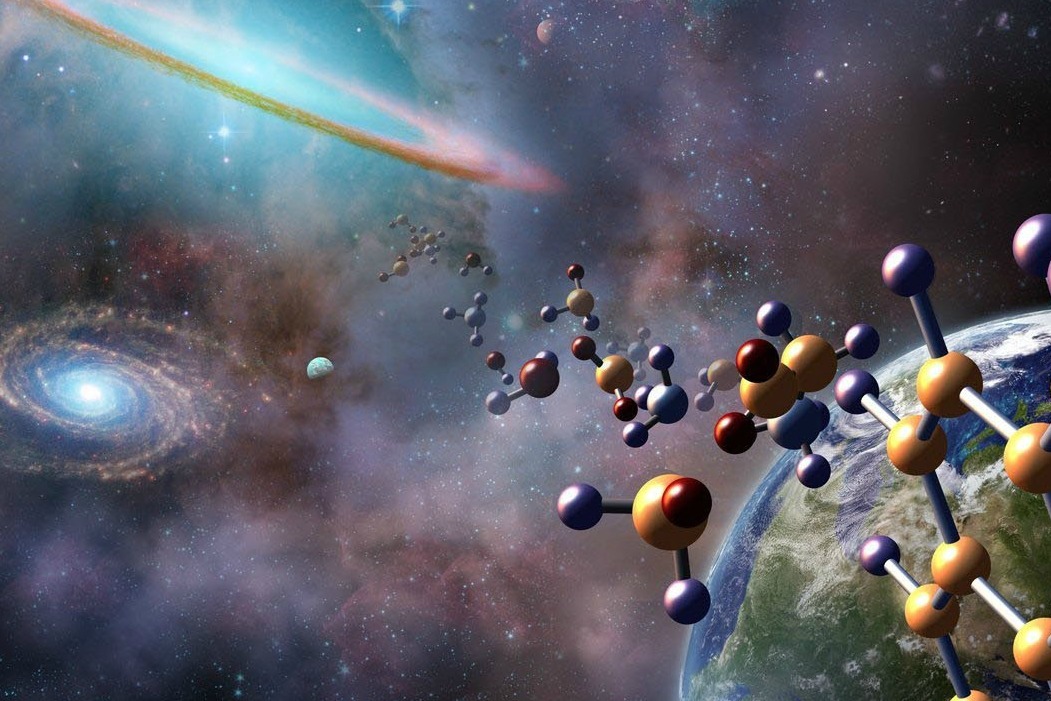Protons, neutrons, electrons. Atoms, elements, and chemicals. These are words that you are probably used to hearing in a science class, not in a blog post about how one encounters God. I am a chemist, though, and as strange as it might sound, through these basic building blocks of matter, I find God in my work.
In chemistry, we manipulate chemicals to make new compounds, to treat diseases, to improve energy efficiency, and to lessen climate change. We tackle a variety of projects to improve our lives. An individual chemist cannot work on all of these projects during his or her lifetime, and only the most extraordinary chemists make world-changing discoveries that catch the public’s attention. Most of us work on projects that, while significant, remain disguised in technical jargon and are only understood by other scientists. The scientific advances that we have made and the ways in which we now understand nature are amazing. There’s one thing, though, that I’ve always wondered about that seems to go beyond a simple chemical explanation: life.
Synthetic chemists are great at predicting what will happen when they mix compounds together. They can develop a complicated series of steps to synthesize a complex compound. They can make compounds that interact with our biology, and they can help chemical processes in our bodies function properly. We can put chemicals together, they react, and we are left with the products of that reaction. In some limited cases, we can make chemical systems that self-replicate, but we cannot make life. We cannot take a collection of chemicals and make a single-celled organism, let alone something more complex. In some ways, our bodies can be thought of as collections of chemicals that can think, that can make decisions, that can be self-aware, and that can come up with great ideas and new inventions. But how can a collection of chemicals do that? How is it that we can have free will?
If all we are is a collection of chemicals, then our lives are already laid out for us and are predetermined through a series of chemical interactions. We would be able to predict everything that everyone would do. But we are not able to plug people into equations and see what they will do next. We are able to make our own choices. Simple matter cannot make choices or decisions. Its interaction with the world is determined by physics and the chemical reactions that take place along the way. There is nothing there that can think, be logical, or be self-aware. Living things, and in a particular way humans, are different. In some ways, science can explain these differences, and in other ways, faith is necessary.
Faith and science both seek truth. Science seeks truth in the natural world, and faith complements physical truth with a realm of truth that science cannot investigate. This search for truth leads me to find God through chemistry by asking questions that may not have an answer with a physical explanation.
As a Catholic, I believe that God is the author of creation. As a scientist, I believe in evolution. Many see these two beliefs as opposing each other, but in reality, they are compatible views. Contemplating the complexity of life—and how matter turns to life—is for me a signpost for God. Nature may take its course and evolve according to the rules of the universe, but who made the rules? It seems that the universe was with made with life in mind. The simple fact that chemicals can turn to life is amazing.
The chemical processes that occur to sustain life are so complex, and each step is necessary to sustain life. Take a look at this graphic from the Kanehisa Laboratories KEGG database. It shows all of the metabolic pathways of life, with each dot being a different chemical. There are so many chemicals and reactions taking place in our bodies, and it takes all of these steps to sustain life!
If we take any individual pathway or cycle from this graphic and look at it individually, there is no life. If we look at several interacting pathways, more complex reactions can take place, but there still is no life. If we were able to take all of these pathways together and replicate them in a lab, the same chemical processes would occur, but this would not be life either. Why is it that if we replicate all of these reactions in a lab, we don’t have life, but these reactions carried out in a body result in life? We are so much more than the chemicals that make us up. Maybe this is an idea that agrees with living things possessing a soul, which is a truth that science cannot test.
In my research, I can test how electrons move from one area of a gold nanowire to another area, what happens when there are defects in the nanowire or in the supporting medium, or how to control the electrons to do what I want them to do. This is useful in the design of devices to transmit signals from one location to another, similar to how fiber optic cables work. I use equations to mathematically explain the behavior that I observe in my experiments. I can investigate and understand why something happens on a chemical level, but once I know why it happens that way, sometimes I ask, “Why does it happen that way?” That is, scientifically I can describe what is happening, and I can give an account of the physical process that it is undergoing, but philosophically, why does it happen that way? What is the purpose of the chemicals behaving in the way that they do? Is there a purpose? My chemistry knowledge and my research give a certain kind of truth, but a search for a truth beyond a physical explanation can’t be found in chemistry. It is in these moments that I simply marvel at how the world is put together, how it has been designed, and how, ultimately, God is at work behind it all.
Paul Johns is a Ph.D. candidate in physical chemistry at the University of Notre Dame.



